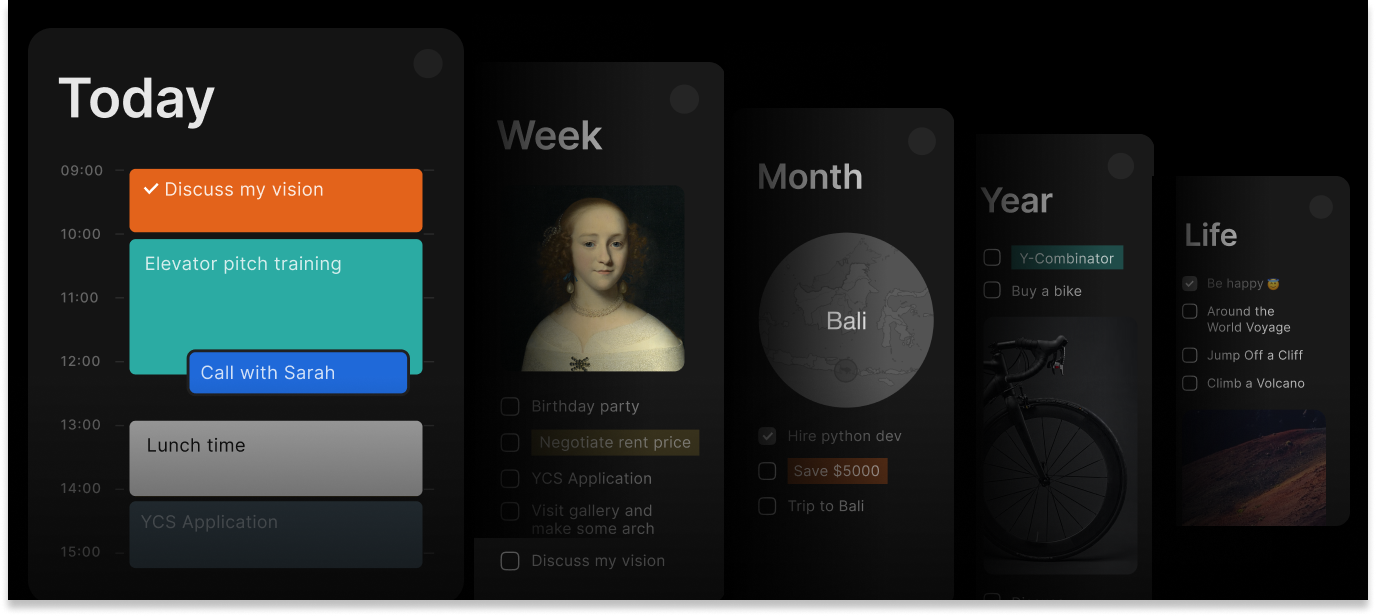How to Stop Overthinking and Make Decisions Faster

In 1858, Charles Darwin faced a dilemma that could have stalled his legacy. Should he publish his theory of evolution, risking ridicule, or wait for more evidence? His mind churned with doubts, yet he set a deadline, trusted his instincts, and acted, changing science forever. Like Darwin, we all grapple with decisions, big and small, that trap us in overthinking's grip. Whether choosing a career path, a dinner menu, or a life partner, the mental maze of what-ifs can paralyze us. But indecision isn't inevitable. By understanding why we overthink and embracing three core principles, constraint, clarity, and action, you can decide faster, with confidence, and shape your future with purpose. Let's explore how to break free and make decisions that stick.
The Science of Overthinking
Overthinking, or excessive rumination, is a universal human quirk rooted in our biology and psychology. Your brain's prefrontal cortex, responsible for planning and analysis, can get stuck in a loop when faced with uncertainty. Daniel Kahneman's Thinking, Fast and Slow (2011) describes this as System 2 thinking, slow, deliberate, and effortful, clashing with System 1's quick, intuitive judgments. When System 2 dominates, you overanalyze, chasing perfect answers that don't exist.
This tendency has evolutionary roots. Our ancestors needed to weigh risks carefully, like whether to hunt or flee. But in modern life, with endless choices and information, this caution becomes a trap. A 2023 University of Michigan study found that overthinking triggers decision fatigue, depleting mental energy and impairing judgment. Perfectionism and fear of regret amplify the problem, studies show 73% of people struggle with analysis paralysis, agonizing over outcomes they can't fully control.
Overthinking doesn't just slow decisions, it harms well-being. Chronic rumination raises cortisol, fueling anxiety and disrupting sleep, per a 2021 study in Social Science & Medicine. Philosophically, the Stoics like Marcus Aurelius warned against this, focus only on what's in your control, and let go of the rest. Yet, many of us spiral, thinking more analysis equals better choices. Spoiler: it doesn't. The path forward lies in simplifying how we decide, using timeless principles that cut through the noise.
Pathways to Decisive Action
Principle 1: Embrace Constraint
The paradox of choice is real, too many options breed indecision. In 2000, psychologists Sheena Iyengar and Mark Lepper showed that people were less likely to buy jam when offered 24 flavors versus 6. Constraint, setting deliberate limits, is a powerful antidote to overthinking. By narrowing your focus, you reduce cognitive overload and decide faster.
Take time constraints. Parkinson's Law, work expands to fill the time available, applies to decisions. A 2024 study in the Journal of Behavioral Decision Making found that time limits boost decision speed without harming quality for most choices. For example, when Steve Jobs designed the first iPhone, he gave his team tight deadlines to force prioritization, leading to a focused, iconic product.
Action Steps: For small decisions (e.g., picking a meeting time), set a 5-minute timer. For bigger ones (e.g., a career move), give yourself a day or two. Write down key factors, decide when time's up, and commit. Limit options to three, whether choosing a vacation spot or a job candidate, to avoid overwhelm. Constraint isn't restrictive, it's liberating.
Principle 2: Seek Clarity Through Satisficing
Perfectionism whispers that there's always a better choice, but chasing it wastes time and joy. Satisficing, coined by Herbert Simon in 1956, means picking a "good enough" option that meets your core needs. Research shows satisficers are happier and less stressed than maximizers, who obsess over optimal outcomes. When buying a car, a satisficer picks one with good mileage and price, a maximizer researches endlessly for the "best."
Satisficing works because most decisions aren't life-or-death. A 2023 Forbes article notes that 80% of decisions can be made with incomplete information, good enough often leads to great results. Historical figures like Cleopatra used this, she made bold, timely alliances without perfect foresight, securing power through decisive clarity.
Action Steps: Define your must-haves (e.g., for a laptop: under $1,000, reliable). Choose the first option that fits, and stop searching. Ask, "Does this meet my needs right now?" If yes, move forward. For creative decisions, like writing a pitch, set a "good enough" draft goal, then refine later. Clarity comes from action, not endless deliberation.
Principle 3: Act with Intuition
Your gut is smarter than you think. Intuition, or System 1 thinking, processes patterns and experiences faster than conscious analysis. A 2018 study in Organizational Behavior and Human Decision Processes found that combining intuition with analysis yields better decisions, especially under time pressure. Car buyers trusting their gut were satisfied 60% of the time, versus 25% for purely logical choices.
Intuition shines in familiar contexts. When chefs like Julia Child improvised recipes, they leaned on instincts honed by experience. Even in high-stakes moments, like firefighters making split-second calls, intuition often outperforms overanalysis. Overthinking drowns out this inner voice, so learning to trust it is key.
Action Steps: Pause, take a deep breath, and ask, "What feels right?" Write down your first instinct before second-guessing. Test it on low-stakes choices, like picking a movie, to build confidence. For bigger decisions, pair intuition with a quick pros-and-cons list to balance gut and logic. Action fueled by intuition propels you past doubt.
Timeless Takeaways
Overthinking is a human habit, but it doesn't have to define you. By embracing constraint, seeking clarity through satisficing, and acting with intuition, you can cut through mental clutter and decide with purpose. These principles, rooted in science and history, work for any decision, from daily tasks to life-changing leaps. Like Darwin, who chose action over doubt, you have the power to shape your path.
Start today with Timestripe's tools to structure your decisions and stay focused. Pick one principle, apply it to a choice, and see how momentum builds. Every decision, no matter how small, is a step toward a clearer, bolder you.
Read next



